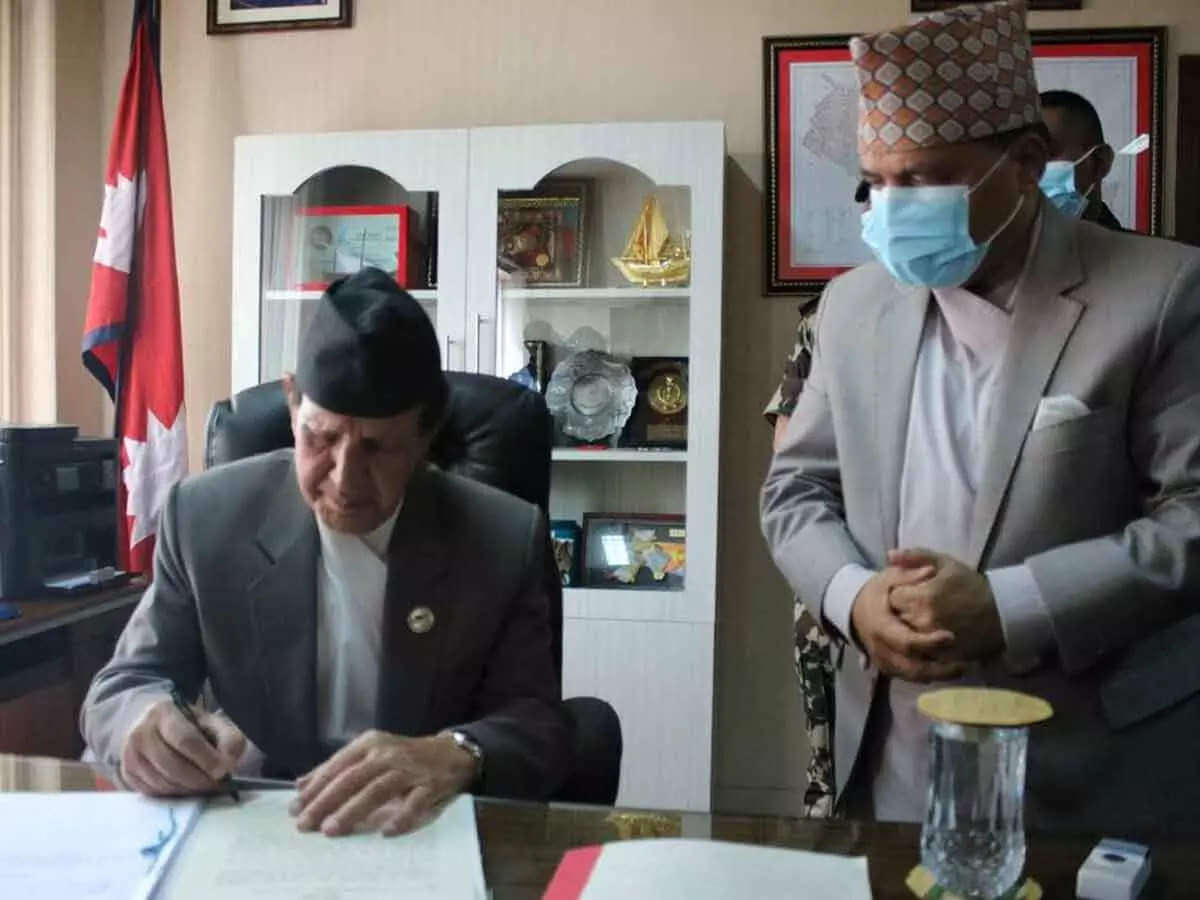Nepal’s newly-appointed foreign minister (FM), Narayan Khadka, said he wants to maintain friendly ties with both India and China amid border disputes.
On Wednesday, Khadka was sworn in as the new Minister for Foreign Affairs by President Bidya Devi Bhandari during a ceremony at the Rashtrapati Bhawan in the presence of Prime Minister (PM) Sher Bahadur Deuba.
Speaking to reporters after his swearing-in ceremony, Khadka said he would “work towards maintaining friendly and balanced relations with India and China and forge national consensus with political parties on matters of foreign relations.”
The minister also promised to resolve the issue regarding the Millennium Challenge Corporation (MCC) Compact Agreement signed by the United States (US) and Nepal in 2017. Under the programme, the US pledged grant assistance worth $500 million to improve Nepal’s road networks and strengthen its transmission line, facilitating hydroelectricity export to India.
Khadka’s appointment comes two months after the formation of a new government led by PM Deuba. Until now, the PM was handling the portfolio.
On September 1, the Nepalese government, led by PM Deuba, formed a five-member committee to analyse its border dispute with China in Nepal’s Humla district. Although China claims to be Nepal’s biggest ally, its advances in the district have raised concerns in the government. Reports of Chinese encroachment were dismissed by the previous government led by PM KP Sharma Oli. However, after the formation of PM Deuba’s government, senior Congress members demanded a committee to look into the border issues.
Apart from China, Nepal is also engaged in a border dispute with India. India and Nepal share an open border of about 1,800 km. While both countries have finalised 98% of the boundary, the Lipulekh pass, Kalapani and Limpiyadhura in western Nepal remain contested territories. India’s new map released after the division of Jammu and Kashmir and Ladakh angered both Nepal and China as it included some contested territories within the Indian border. Subsequently, in retaliation, Nepal’s revised map released in May 2020 had the disputed areas within its territory. Moreover, the inauguration of an 80 km road to Mansarovar in May 2020, a part of which is being built on Nepal’s land in the Lipu Lekh area, further escalated tensions between the nations.
India has also expressed concern over Nepal’s growing ties with China and Chinese investments, aid, and loans to the landlocked country. Nepal is a crucial partner in China’s Belt and Road Initiative (BRI), and Beijing wishes to invest heavily in the Himalayan nation’s infrastructure projects. In fact, during his visit to Nepal in 2019, Chinese President Xi Jinping urged to upgrade the bilateral ties between both countries to a strategic partnership. Nepal’s burgeoning ties with China are especially concerning because the disputed territory of Lipulekh is a gateway to India’s Himalayan region and poses a security threat.
After his appointment on Wednesday, Khadka left for New York to attend the 76th session of the United Nations General Assembly (UNGA). He is scheduled to address the General Debate at the UNGA on the theme of “Building resilience through hope to recover from COVID-19, rebuild sustainably, respond to the needs of the planet, respect the rights of people, and revitalise the United Nations.” Khadka will also attend ministerial meetings on the sidelines of the UNGA and engage in bilateral consultations with his US counterparts and other officials.

